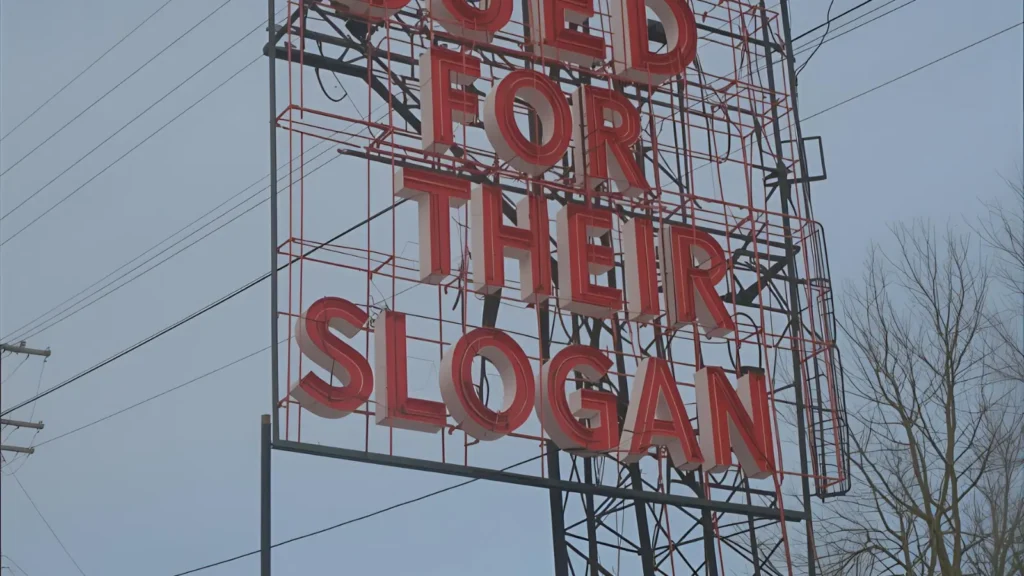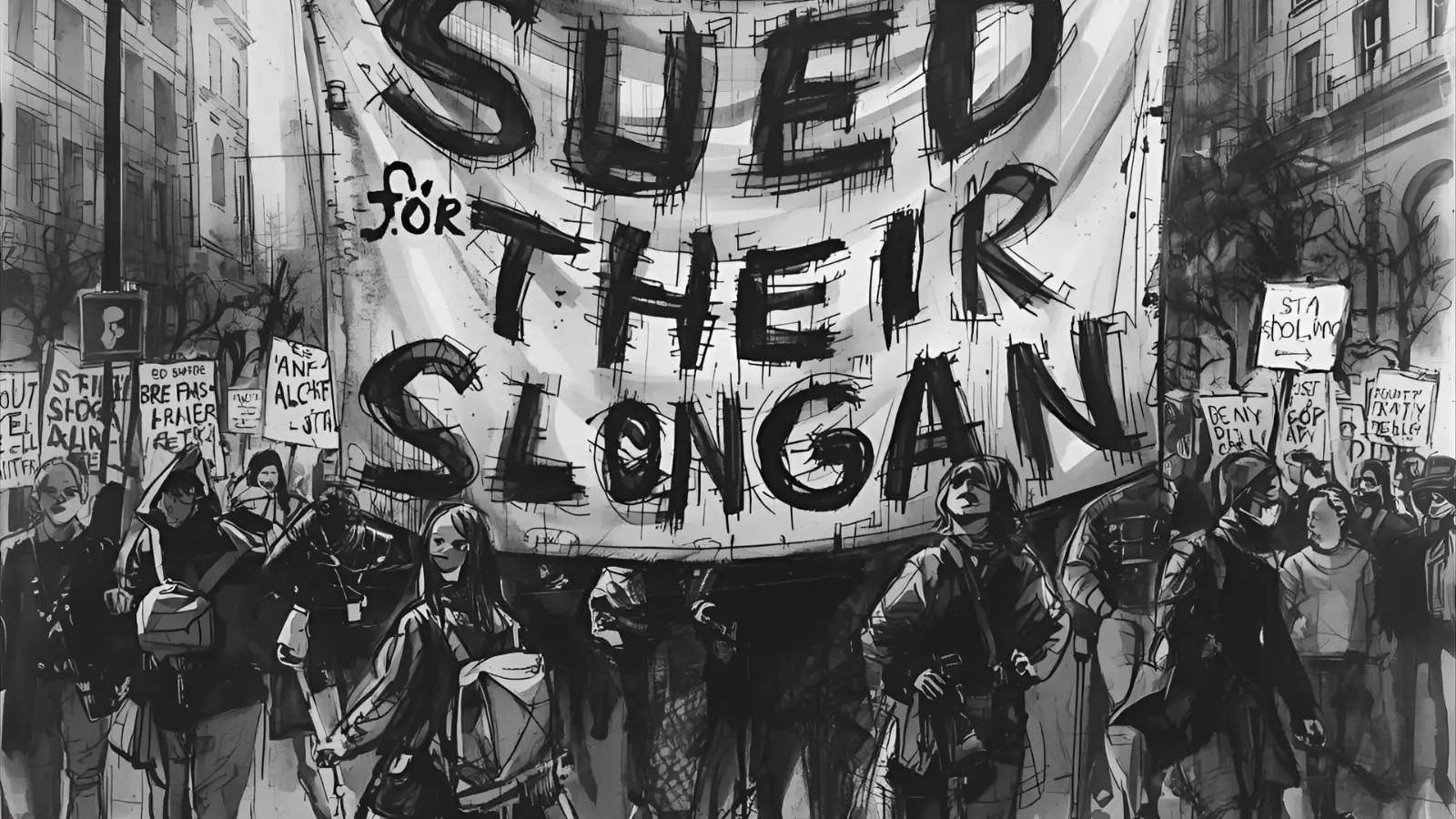Yes, Red Bull was indeed sued over its iconic slogan “Red Bull gives you wings.” In 2014, the company settled a class-action lawsuit for $13 million after plaintiffs argued the slogan was false advertising—claiming the drink didn’t actually enhance performance or give any sort of energy boost beyond caffeine and sugar.
The case became a landmark example of how marketing slogans—no matter how metaphorical—can have real legal consequences.
If you’re wondering did Red Bull get sued for their slogan, the answer is a resounding yes, and the case reshaped how companies use exaggeration in advertising. 🧑⚖️💥
Did Red Bull Get Sued for Their Slogan Reddit? 🧑⚖️🟥

Yes—Red Bull did get sued over their iconic slogan “Red Bull Gives You Wings,” and Reddit users have discussed it extensively. The viral lawsuit involved a consumer who claimed the slogan was misleading, since drinking the beverage did not actually enhance physical performance or give “wings”—literally or figuratively.
On Reddit, this lawsuit sparked heated discussions, memes, and skepticism, especially on subreddits like r/todayilearned and r/legaladvice. Many users were shocked that a metaphorical slogan could lead to a legal payout.
💬 Reddit’s Reaction:
- “You mean I don’t fly after three cans?”
- “What’s next, suing Frosted Flakes because they’re not actually great?”
Despite the jokes, this lawsuit was real—and successful.
Red Bull Gives You Wings Lawsuit: Who Won? ⚖️🏆
Benjamin Careathers, a U.S. consumer, won the lawsuit after filing a class-action complaint against Red Bull in 2013.
He argued that Red Bull’s slogan “Gives You Wings” was false advertising because:
- It misled consumers into believing they’d receive enhanced performance.
- It lacked scientific backing for improved concentration, reaction speed, or energy.
- The drink contains less caffeine than a standard Starbucks coffee.
👨⚖️ Final Outcome:
- Red Bull settled the case in 2014 without admitting wrongdoing.
- They agreed to pay $13 million in a class-action settlement.
- Eligible customers could claim $10 cash or $15 in Red Bull products.
So yes—Red Bull lost the case financially, even if they didn’t admit fault legally.
Benjamin Careathers 👤📜
Benjamin Careathers, a regular consumer from New York, became widely known after he filed the now-famous lawsuit against Red Bull. He claimed he drank the beverage regularly from 2002 to 2014, relying on their advertising to believe it improved performance.
His complaint focused on deceptive marketing, stating that the slogan created a false sense of energy enhancement. The suit claimed that consumers were duped into paying a premium for a drink no more effective than a cup of coffee.
🔍 His case opened the door for other consumers to join under a class-action lawsuit, leading to the eventual $13M settlement.
Red Bull Gives You Wings New Slogan 🆕🕊️

Although Red Bull kept using “Gives You Wings” in a playful and metaphorical way after the lawsuit, they subtly changed how they advertise to avoid further legal scrutiny.
Here’s how they responded:
- They added disclaimers on their ads (e.g., “metaphorical”).
- They restructured ad messaging to emphasize “vitality and mental alertness” instead of literal performance enhancement.
- The phrase is still used, but with less emphasis on physical claims.
📺 Modern ads focus more on lifestyle, extreme sports, and mental energy rather than the old implications of “superhuman” physical boost.
Who Sued Red Bull for Not Getting Wings? 🦸♂️🪶
The now-infamous lawsuit was spearheaded by Benjamin Careathers, who sued Red Bull in 2013 for false advertising. He alleged that the slogan misled consumers into thinking they’d gain superior performance, which the product didn’t scientifically deliver.
The claim attracted thousands of consumers, turning it into a class-action lawsuit in the U.S. district courts.
Why Did He Sue?
- Misleading slogans (“Gives You Wings”)
- No scientific proof of enhanced energy or performance
- Felt the brand profited through deception
This case became one of the most talked-about false advertising lawsuits in beverage marketing history.
Red Bull Slogan 🥤🕊️
The legendary Red Bull slogan “Red Bull Gives You Wings” was first launched in the late 1990s and has since become one of the most recognizable taglines in the world.
Why It Worked:
- It was memorable, motivating, and metaphorical.
- The slogan became synonymous with extreme sports and limit-pushing energy.
- It had emotional impact—implying potential, freedom, and power.
Despite the lawsuit, Red Bull never fully abandoned the slogan. Instead, they added legal disclaimers and adjusted campaign messages to steer clear of further liability.
✈️ Fun Fact: The slogan was so effective, it helped Red Bull dominate over 75% of the global energy drink market in certain years.
✈️ What Was the Red Bull Lawsuit All About?

The 2014 lawsuit centered on false advertising. Here’s what happened:
- 🧃 Consumers claimed Red Bull’s slogan “gives you wings” was deceptive.
- ⚖️ The argument? That the drink didn’t improve performance, reaction speed, or focus more than a regular cup of coffee.
- 💵 Red Bull agreed to settle the case without admitting wrongdoing, paying $13 million in total.
- 👥 Eligible consumers could receive $10 cash or $15 in Red Bull products.
This class-action lawsuit highlighted the legal risks of using exaggerated slogans, even if they seem humorous or metaphorical.
🧠 Why Did Red Bull’s Slogan Cause Legal Trouble?
Even though most people knew “wings” were metaphorical, the court found:
- 🗣 The advertising implied enhanced performance, which could mislead.
- 📈 Red Bull advertised benefits that lacked scientific backing.
- 💬 The lawsuit cited studies showing no significant difference in energy levels compared to a cup of coffee.
Bottom line? Exaggeration in marketing can backfire, especially if it implies a physical or functional benefit.
🦅 The Phrase “Red Bull Gives You Wings” — Just a Metaphor?
Yes—and no.
- ✨ Red Bull intended the phrase to be symbolic: energy, empowerment, alertness.
- 😠 But the plaintiffs took issue with how Red Bull framed those effects.
- 📺 Their commercials and branding leaned into performance claims, like faster thinking, enhanced focus, etc.
In the eyes of the court, that made the slogan partially literal, and therefore, legally actionable.
💰 What Was the Outcome of the Lawsuit?
Here’s what the Red Bull class action settlement looked like:
- 🧾 Red Bull paid $13 million into a settlement fund.
- 👨👩👧👦 Any U.S. consumer who bought Red Bull from 2002–2014 could file a claim.
- 💸 They could choose between:
- $10 in cash, or
- $15 worth of Red Bull products
- $10 in cash, or
- 📆 No proof of purchase was required—but only one claim per household.
Red Bull changed nothing about its marketing—but the legal message was loud and clear.
🧃 Did Red Bull Admit Guilt or Fault?
Nope.
- 🧑⚖️ The company explicitly stated that they did nothing wrong.
- ✍️ The settlement was a voluntary resolution to avoid prolonged litigation.
- 📢 Red Bull maintained that the slogan was harmless exaggeration, known in the ad world as “puffery.”
Still, the financial payout made headlines and served as a cautionary tale for marketers.
📺 How Did the Lawsuit Affect Red Bull’s Marketing?
Interestingly, not much changed outwardly:
- 🪽 Red Bull still uses the phrase “gives you wings.”
- 📊 Their brand image remains strong, especially with extreme sports and youth culture.
- 📉 But marketers everywhere learned to be more cautious with exaggerated claims.
The slogan is still iconic—but now it carries a legal legacy.
🧾 Can Slogans Really Lead to Lawsuits?
Yes, absolutely. Red Bull isn’t alone.
Here are some other famous cases:
- 🍫 Nutella was sued for falsely marketing itself as a “healthy breakfast.”
- 🌽 Kellogg’s faced heat for overstating the fiber content in its cereals.
- 🥛 Activia yogurt paid $45 million for claiming it had “special bacteria.”
These lawsuits show that clever slogans must be backed by facts, especially when health or performance is mentioned.
⚖️ What Marketers Can Learn from Red Bull’s Lawsuit
If you’re building a brand or launching a product, keep these lessons in mind:
- 🚫 Don’t overpromise: Even symbolic slogans can mislead.
- 📚 Have scientific support for any claims.
- 🎯 Avoid phrases that imply functional benefits unless proven.
- 📝 Include disclaimers when appropriate.
- 📢 Remember: Puffery is okay, but it has limits.
Your slogan can make or break your brand—legally and reputationally.
💼 Red Bull’s Brand Power Post-Lawsuit
Despite the controversy:
- 📈 Red Bull is stronger than ever, selling 10+ billion cans annually.
- 🏁 It dominates the extreme sports and esports markets.
- 🧠 Their marketing continues to push limits—with more disclaimers now.
The lawsuit didn’t slow them down—but it warned everyone else.
🔎 Final Verdict: Did Red Bull Get Sued for Their Slogan?
✅ Yes.
💰 They paid $13 million.
🪽 The slogan stayed the same.
⚠️ But the legal landscape changed forever.
It’s a reminder that words matter, especially when they promise a benefit. Red Bull’s wings may be metaphorical—but the lawsuit was very real.
🏁 Conclusion: Wings, Words, and Warnings 📝
Red Bull’s legal saga proves that in today’s world of marketing, creativity must be balanced with caution. While a great slogan can elevate your brand, it can also expose you to unexpected legal risks if misinterpreted. Red Bull survived and thrived—but not every brand gets that lucky. So if you’re crafting your next big tagline, make it bold—but back it up. 🧠💡
Michael Smith is a slogan expert from Chicago who loves turning simple words into memorable lines. She writes fun, trendy, and modern slogans that perfectly fit today’s digital world.

